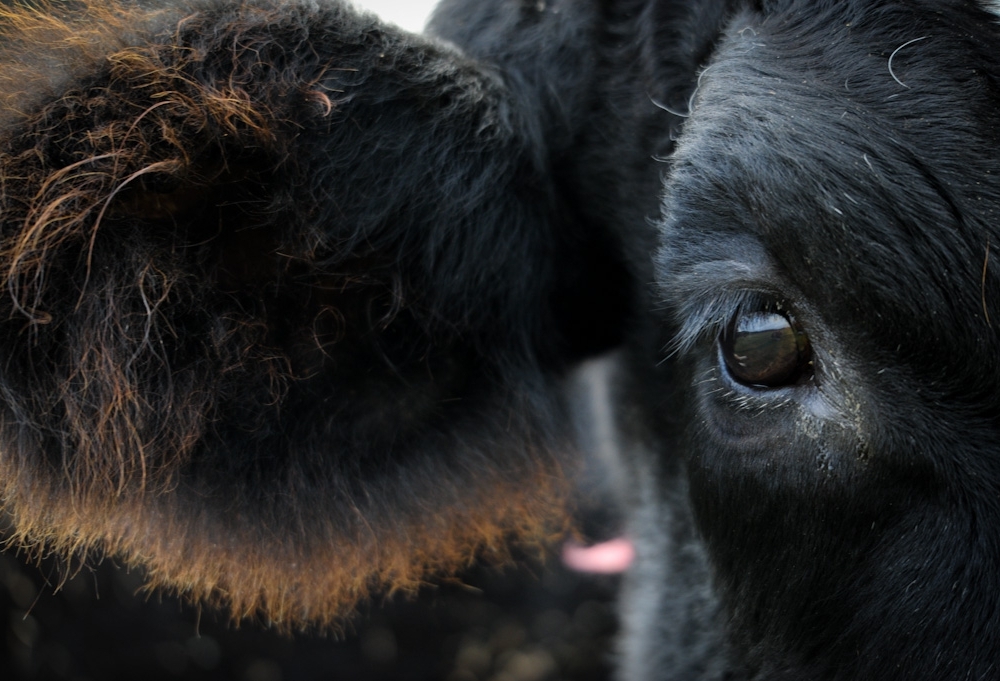In stark contrast, this Saturday I posted a photo on my Instagram account of two of our “getter-outer” cows standing by the gate by our milk barn. I noted that these two didn’t like where we put our fences, but they still wanted to be milked (I opened the gate, and they walked right in – no persuasion required). Without thinking I used a hashtag (#milktruth) that was apparently being monitored by a rather angry set of vegans. I almost immediately started receiving comments about stealing babies and milk and being “fake” for claiming to care about our cattle. When I took the photo, I was standing in the rain doing exactly what these cows wanted me to do, so forgive me for my confusion. One user was so amped up over my post that she posted disrespectful and insulting (and untrue) comments on several of my other pictures before I was felt it was necessary to block her.I’m not opposed to a difference of opinion, and I strive to allow productive discussion on all of my social media sites. After all, I don’t think I’m doing a very good job as a farmer or a writer if my opinions and practices cannot stand up to challenges; however, I will not approve comments that are disrespectful, slanderous or vulgar, and I will not hesitate to block someone who is clearly on the attack. There’s nothing productive about that situation. They don’t care what I have to say, and at that point, I don’t much care for their input either.So what’s the difference? When a person witnesses our work face to face, they are polite and respectful. No question is off-limits, and we give the best honest answers we can. When a person (albeit one with a pre-conceived agenda to attack what we do) sees us posting about our work on the internet, though, they are rude and often vulgar. I often wonder, have they forgotten that on the other side of another screen is a person? Would the discussion go differently face to face? Maybe not, but perhaps the anonymity of the internet allows them to ignore the humanity of the people on the other side.Most farms are family owned, and they’re managed by the same people out there busting their backs every day. In case you didn’t know this, farmers are people. I didn’t realize it had to be said, but apparently it does. We’re people (even those of us who use social media), just like you. We work, we play, we win, we lose, we laugh, we cry, we struggle, but we try. Every single day we try to do our best – at home, in the barn, and in between. We try to make a living. We try to build a legacy. We try to care for our land and our animals in the best way possible. We try to do all things in a way that lets us sleep well at night. We are not perfect, but we are people.
Response to “Open Letter from a Farmer to Angry Vegetarians”
http://www.huffingtonpost.com/jenna-woginrich/an-open-letter-from-a-far_b_5587803.html?utm_hp_ref=tw
I wrote this reply, in response to the article linked above, as a way to express my considerations. I’m not sure if I’ll post it to her, I don’t care if she sees it or not. There are inaccuracies in her letter (interchanges vegan and vegetarian so doesn’t even know the meaning of what she’s criticising – we only eat tofu, like all animals are only raised industrially…). Anyway, here it is:
We live in a time of abundant choices, yes, so surely that means we should make the most compassionate, ethical choices?
I understand the differences between large-scale industrial farming and small-scale organic farming in terms of a lot of the problems involved with using and eating animals. However, this doesn’t take into consideration the fact that, if we give any moral consideration to animals, we have no right to take their lives when there is no need to…
View original post 2,485 more words

